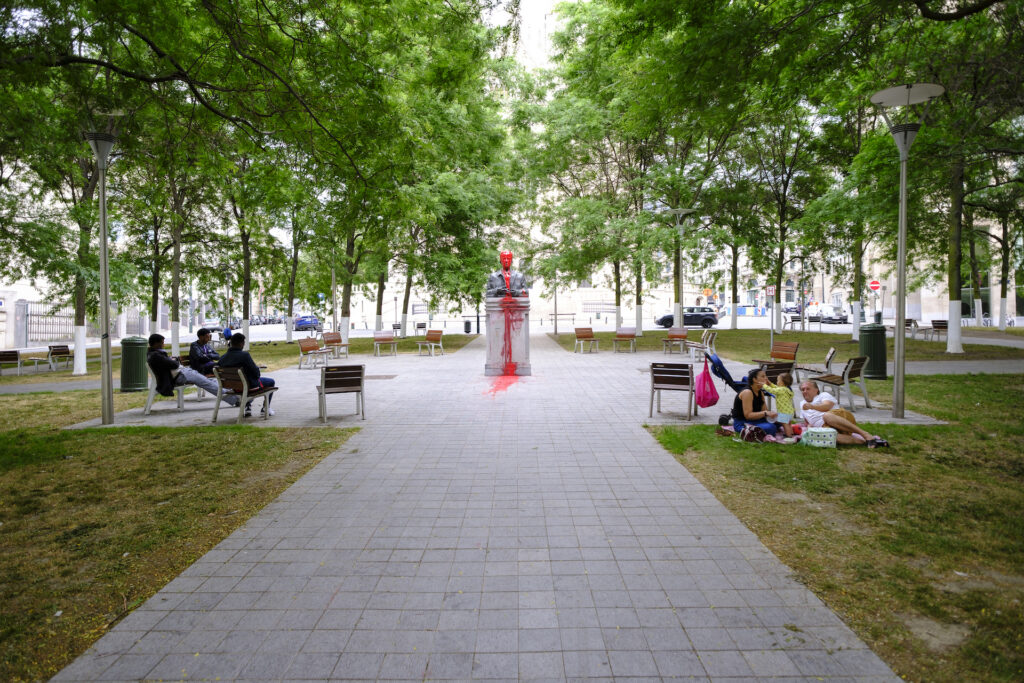To Decolonize, We Must End the World as We Know It

This contribution is part of the special forum Can Anthropology Be Decolonized? Read the introduction to the series here.
Colonization was—and is—not an innocent “encounter” between European explorers and the rest of the world. It was a violent genocidal enterprise.
In the “Congo Free State,” the monstrous actions of King Leopold II of Belgium, who ruled the territory as his private property, led to the slaughter of between 10 and 20 million Congolese. In present-day Namibia, Germans decimated 80 percent of the Herero community and 50 percent of the Namaqua population and forced the survivors into labor camps. The Portuguese were known for forced labor in Mozambique and the use of the chicote, a long whip, for corporal punishment. The British held Kenyans in concentration camps and were sadistic with their punishments, especially against the Kenya Land and Freedom Army. The French actions in Algeria are inconceivable. Martinican writer and politician Aimé Césaire quotes Colonel de Montagnac, a conqueror of Algeria, who said, “In order to banish the thoughts that sometimes besiege me, I have some heads cut off, not the heads of artichokes but the heads of men.”
This was violence upon an earlier violence: Colonization occurred during and after the start of the vicious capture, transport, and enslavement of Africans to the Americas.
Violent, also, was the justification of enslavement and colonization through racist science—the emergence of evolutionary anthropology. This ideological apparatus codified domination and dehumanization, and structured the modern world within a hierarchy of races, nations, and cultures.
To recall the violence, the “hideous butcheries,” of colonialism, is to revoke the imperial amnesia around the reality that, as Césaire reminded us, “colonial activity, colonial enterprise, colonial conquest … is based on contempt for the native and justified by the contempt.” It is a violence—the deaths, the destruction, the lies—with lasting scars. These scars do not heal.
And this violent system has not been eradicated.
Indeed, decolonization of the African continent occurred through the very structures of a liberal modernity based on colonialism: the imposition of national borders of the Berlin Act and the acceptance of the world as ordered and racialized by the conquerors. As international law scholar James Gathii describes, a Eurocentric, Christian, imperialist order remains the order of the day, well after decolonization. Western nations and institutions continue to coercively run the world: NATO, the G20, the United Nations Security Council, the International Monetary Fund, the World Bank, the World Trade Organization, and The Hague.
To speak of decolonizing anthropology is to first reckon with the colonial. To reckon with the colonial is to concede its continuation in the present. That means reckoning with the reality of dehumanizing conquest and the ensuing unequal power structures that continue to dictate the terms for what many anthropologists continue to do: research, write about, and ultimately make a career out of studying “the non-European Other.”
For it is precisely the violence of conquest and colonization that first made the discipline possible. It is what gave anthropology its raison d’être, its dehumanizing need to better “know” the conquered, non-European societies that its people had progressively dominated.
We must rethink the fundamental dynamics at work in the discipline of anthropology: What are the working assumptions that determine a significant site of analysis or a popular theoretical model? What intellectual products can come out of working under and within white supremacist, unequal power structures?
My own research has focused on excavating the racial foundations of the discipline. Specifically, I trace the relationships of anthropology, race, and Africa to demonstrate that the terms through which African societies are studied actually conceal the upheaval caused by conquest. And I demonstrate the ways that most, if not all, anthropological theory depends on Africa as an original “scientific” laboratory for the making of “tribes” and “races.”
Admittedly, this work can only go so far in decolonizing a discipline so deeply ensconced in the hierarchies of the current world order.
Philosopher Frantz Fanon argued that decolonization requires the “complete calling in question of the colonial situation.” Decolonization is the complete dismantling of the current global order that is structured by Eurocentric legal, political, social, and disciplinary formations.
Decolonization, when it comes, would have to mean the end of the world as is and, with it, the end of disciplines.































